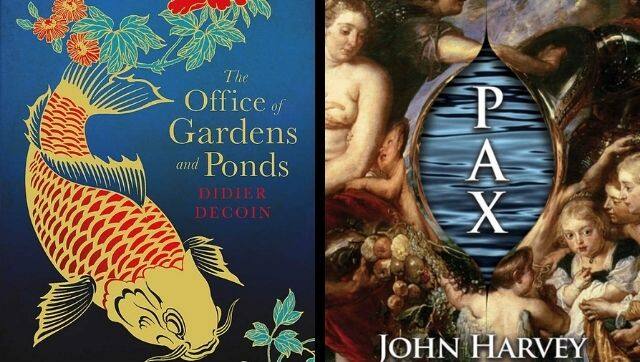By Alan Yuhas For the first time in more than a decade, a contest to award the worst sex writing in the English language will not deliver a winner to the public, a relief for readers left mortified by the annual selection and sad news for the world’s connoisseurs of cringe. The Bad Sex in Fiction Award is canceled. The editors who run the contest announced the decision on 8 December on the website of their magazine, Literary Review, saying that the year 2020 has been unpleasant enough without their contribution. “The judges felt that the public had been subjected to too many bad things this year to justify exposing it to bad sex as well,” the statement said. “They warned, however, that the cancellation of the 2020 awards should not be taken as a license to write bad sex.” Staff members for the Literary Review, a British magazine not to be confused with a New Jersey-based publication of the same name, have curated terrible sex writing for almost three decades. The award’s purpose, according to the magazine, is to honor the year’s “most outstandingly awful scene of sexual description” and to draw attention “to the poorly written, redundant or downright cringe-worthy passages of sexual description in modern fiction.” [caption id=“attachment_9094231” align=“alignnone” width=“640”]  In 2019, the Literary Review awarded the prize to authors Didier Decoin and John Harvey for The Office of Gardens and Ponds and Pax respectively.[/caption] Since the award was established in 1993 by critic Rhoda Koenig and editor Auberon Waugh, the son of Evelyn Waugh, the nominated passages have included a comparison of an orgasm to ‘a demon eel,’ unconventional descriptions of the human body — such as haunches ’that could support a whole array of toothbrushes’ — and coital journeys into outer space. The winner in 2013, Manil Suri, compared sex to exploding supernovas, having characters “streak like superheroes past solar systems” and “dive through shoals of quarks and atomic nuclei.” Norman Mailer won, posthumously, in 2007, thanks to his inventive use of the phrase “a coil of excrement.” The winner in 1997, Nicholas Royle, described an exclamation “somewhere between a beached seal and a police siren.” Though the list of winners is dominated by men, a few women have claimed the prize, including Rachel Johnson, a former magazine editor (and the sister of Prime Minister Boris Johnson of Britain), who won in 2008. The judges noted her repeated use of animal imagery, as when she compared a character’s fingers to “a moth caught inside a lampshade” and his tongue to “a cat lapping up a dish of cream.” Nominees have included some of the most famous names in fiction of the past 30 years. The year of Johnson’s victory, John Updike was given a lifetime achievement award. Authors put on the short list have included Salman Rushdie, Stephen King and Haruki Murakami. In other years, Literary Review editors gather at the In and Out Club in central London to celebrate, reading excerpts aloud and giving the winner the award: a plaster foot. Most writers have received the award with good humor, including Johnson, who called the award an “absolute honor,” and Iain Hollingshead, who said after his 2006 win, “I hope to win it every year.” Others have proved less interested, including the singer Morrissey, who won in 2015 and told the Uruguayan newspaper El Observador that it was “best to maintain an indifferent distance” from “these repulsive horrors.” And some critics have called the award itself misguided and bullying, saying that it could frighten writers from writing about sex at all. The magazine editors expect no such chill, however. On 8 December, they said through an unnamed spokesperson that they “anticipate a rash of entries next year,” as lockdown regulations give rise “to all manner of novel sexual practices.” “Authors are reminded that cybersex and other forms of home entertainment fall within the purview of this award,” the spokesperson said. “Scenes set in fields, parks or backyards, or indoors with the windows open and fewer than six people present will not be exempt from scrutiny either.” Alan Yuhas c.2020 The New York Times Company
The award’s purpose, according to the magazine, is to honor the year’s “most outstandingly awful scene of sexual description” and to draw attention “to the poorly written, redundant or downright cringe-worthy passages of sexual description in modern fiction.”
Advertisement
End of Article


)
)
)
)
)
)
)
)
)



